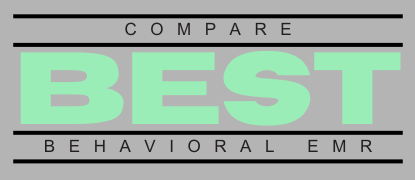As a behavioral health professional, choosing the right behavioral health EMR (Electronic Medical Record) system is crucial not only for streamlined documentation but also for improving patient engagement. The right EMR can significantly enhance patient satisfaction, facilitate effective treatment planning, and ultimately lead to better clinical outcomes. But with so many options available, how can you determine which EMR software best aligns with your practice’s needs and goals?
In this article, we’ll help you understand the essential factors to consider when choosing a behavioral health EMR designed specifically to boost patient engagement and satisfaction.
Why Patient Engagement Matters in Behavioral Health
Effective patient engagement is the foundation of successful behavioral healthcare. Engaged patients are more likely to adhere to treatment plans, actively participate in their recovery, and experience improved mental health outcomes.
According to a study published by the National Institutes of Health, increased patient engagement correlates strongly with reduced symptoms and better overall treatment results. Therefore, your EMR software should not merely be a documentation tool but a powerful partner in patient communication and collaboration.
Key Features of a Behavioral Health EMR that Enhance Patient Engagement
When evaluating behavioral health EMR systems, look specifically for these patient-centric features:
1. User-Friendly Patient Portals
An intuitive patient portal is essential for promoting patient involvement. Through these portals, patients can:
- Schedule appointments online
- Securely message clinicians and support staff
- Access educational materials and personalized resources
- Review their treatment plans and progress notes
A robust patient portal simplifies communication, saves administrative time, and empowers patients to take charge of their behavioral health journey.
2. Automated Appointment Reminders and Communication Tools
No-shows and cancellations are common challenges in behavioral healthcare. An EMR equipped with automated appointment reminders via email, text, or voice calls can significantly reduce missed appointments. Additionally, secure messaging features facilitate ongoing communication between patients and clinicians, strengthening therapeutic relationships.
3. Integrated Telehealth Capabilities
Telehealth has become increasingly vital in behavioral healthcare, especially post-pandemic. Your EMR should offer seamless integration with telehealth technology, allowing you to:
- Conduct HIPAA-compliant video sessions effortlessly
- Document telehealth visits directly within the patient record
- Provide flexible appointment options to patients who face barriers to in-person visits
Explore our detailed guide on best telehealth EMR solutions for behavioral health practices to learn more about telehealth integration.
4. Customizable Treatment Planning and Documentation Tools
Every patient is unique, and your EMR should support personalized care planning. Look for software that offers customizable templates for assessments, treatment plans, progress notes, and outcome tracking. A flexible EMR helps clinicians efficiently document patient progress and tailor treatment approaches based on individual needs and preferences.
5. Outcome Tracking and Analytics
A behavioral health EMR that includes built-in analytics and outcome tracking can help your practice measure patient progress and demonstrate treatment effectiveness. By visualizing patient outcomes, you can better engage patients in their recovery and make data-informed clinical decisions.
How to Evaluate Behavioral Health EMR Vendors
Beyond features, it’s important to carefully evaluate EMR vendors. Here are a few factors to consider:
- User Experience: Is the system intuitive and easy to navigate for both clinicians and patients?
- Customer Support: Does the vendor offer responsive, accessible customer support to address technical issues quickly?
- Compliance and Security: Is the EMR fully compliant with HIPAA regulations and other industry standards?
- Implementation and Training: Does the vendor provide comprehensive implementation support and ongoing training resources for your team?
For additional insights, read our related article: 5 Key Questions to Ask When Selecting a Behavioral Health EMR.
Involving Your Team and Patients in the Decision Process
Successful EMR adoption requires buy-in from both your clinical team and patients. Consider involving your staff in product demonstrations and encourage them to ask questions specific to their workflows. Additionally, you might survey a small segment of your patient population to understand their preferences regarding patient portal features and telehealth capabilities.
Conclusion: Making the Right EMR Choice for Your Behavioral Health Practice
Selecting a behavioral health EMR that enhances patient engagement is an important decision for your practice’s long-term success. Prioritize systems that offer user-friendly patient portals, integrated telehealth, customizable documentation tools, and robust patient communication features. Additionally, always consider vendor reliability, security standards, and the ease of implementation when making your final decision.
If you need personalized guidance to choose the best behavioral health EMR for your practice, take advantage of our free practice analysis. Our experts will help you identify the EMR solutions that best align with your practice goals and patient engagement objectives.
Meta Description:
Discover how to select a behavioral health EMR to boost patient engagement, satisfaction, and treatment outcomes. Get expert tips and a free analysis.
